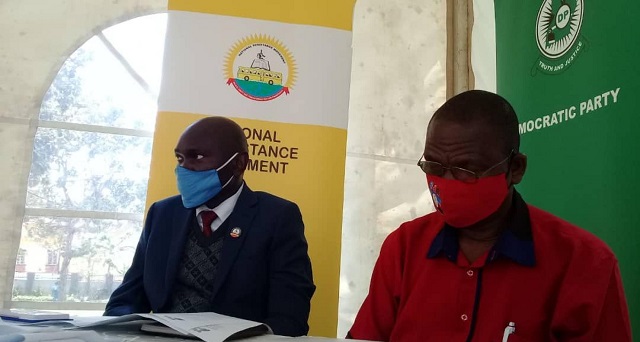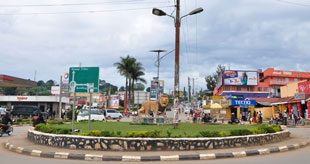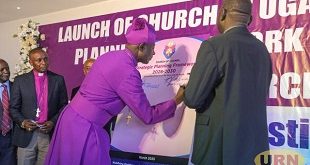
Kampala, Uganda | THE INDEPENDENT | Persons with Disability- PWDs want the number of representatives in Parliament increased from five to eight.
The PWD League of the Inter-party Organization for Dialogue-IPOD say that the positions should be distributed with each of the four regions represented by two including a male and female MP.
Denis Ouma, who represents PWDs in the Forum for Democratic- FDC party says it is illogical to have only five members of Parliament representing the over six million PWDs in the country.
Additionally, they also want the legal framework amended to allow them to conduct elections of members of Parliament at the regional level as opposed to the current system where representatives are elected at National level.
According to the National Council for Disability Amendment Act, 2003, the election of representatives of Persons with Disabilities in Parliament is conducted by secret ballot by the National Electoral College comprising of Persons with Disabilities Executive Committee members from each district.
However, the PWDs say every region should elect its representative for proper representation, accountability and ease of the electoral process especially during campaigns.
Gabriel Kato, chairman PWDs in the National Resistance Movement- NRM says it is awkward for a candidate to represent the entire country.
The PWDs further requested that the government enables PWDs effectively participate in the electoral processes.
They asked the government to have special arrangement to permit them to cast their ballot at least a week earlier such that they do not come to compete with the rest on voting day, availed transport to and from polling center and be given equipment like braille for people with visual impairments.
PWDs have in the past tasked the Electoral Commission to employ sign language interpreters during the electoral processes. They argue that persons with hearing impairments find difficulties to participate in electoral processes especially during campaigns and voting.
These have also reiterated the call to the electoral commission to enhance voter education for PWDs. The information, they say, should be delivered in different formats to meet the needs of different PWDs.
Maxensia Takirambule of the Democratic Party says there was little participation in the recently concluded local council electoral colleges because many PWDs did not have information about the electoral processes.
The acting spokesperson of the Electoral commission Paul Bukenya says there needs to be continued discussions, logistical support and the amendment of the law to provide for some of the requests by the PWDs. He says currently the law provides for only helpers who guide the PWDs during voting.
The PWDs also asked for special funding to finance their activities like primaries. They propose that every political party that gets funds from the government allocates 10% of it to PWDs through their leadership.
Political parties with representation in parliament are entitled to a fund shared numerically among member political parties. This financial year, Shillings 30 billion was allocated for the same.
******
URN
 The Independent Uganda: You get the Truth we Pay the Price
The Independent Uganda: You get the Truth we Pay the Price



